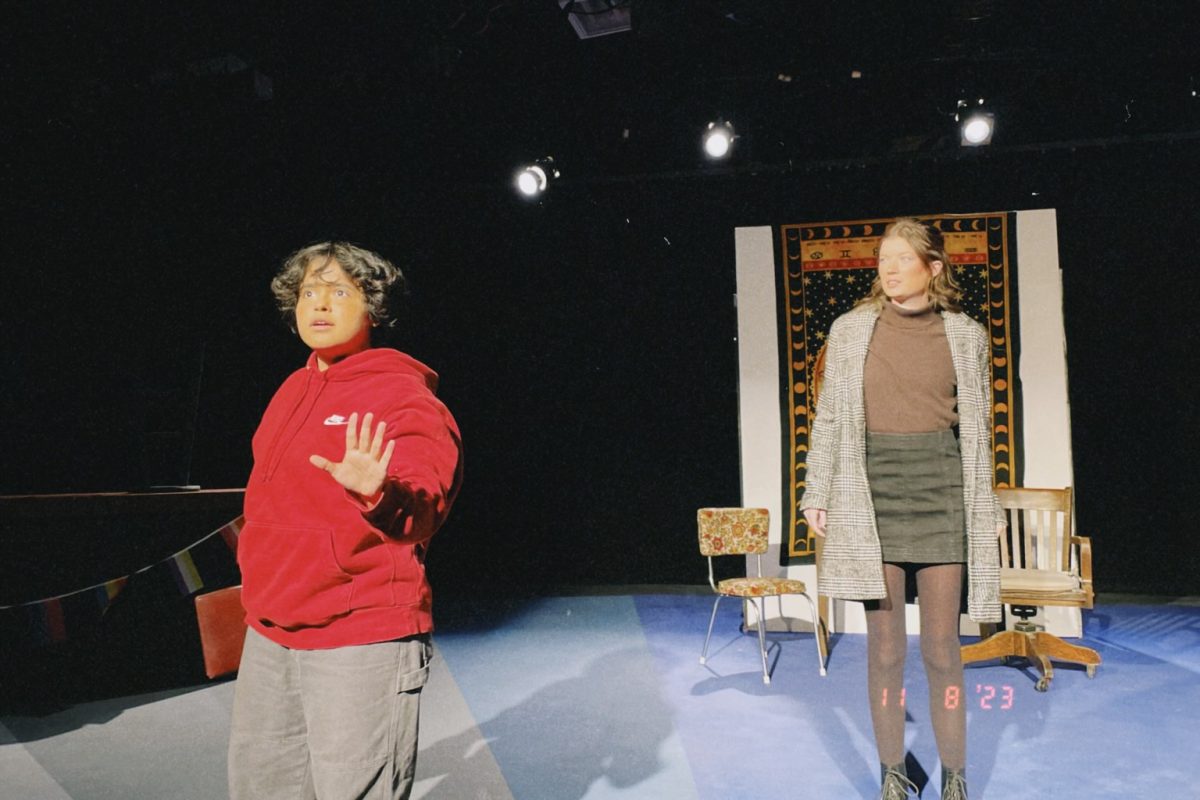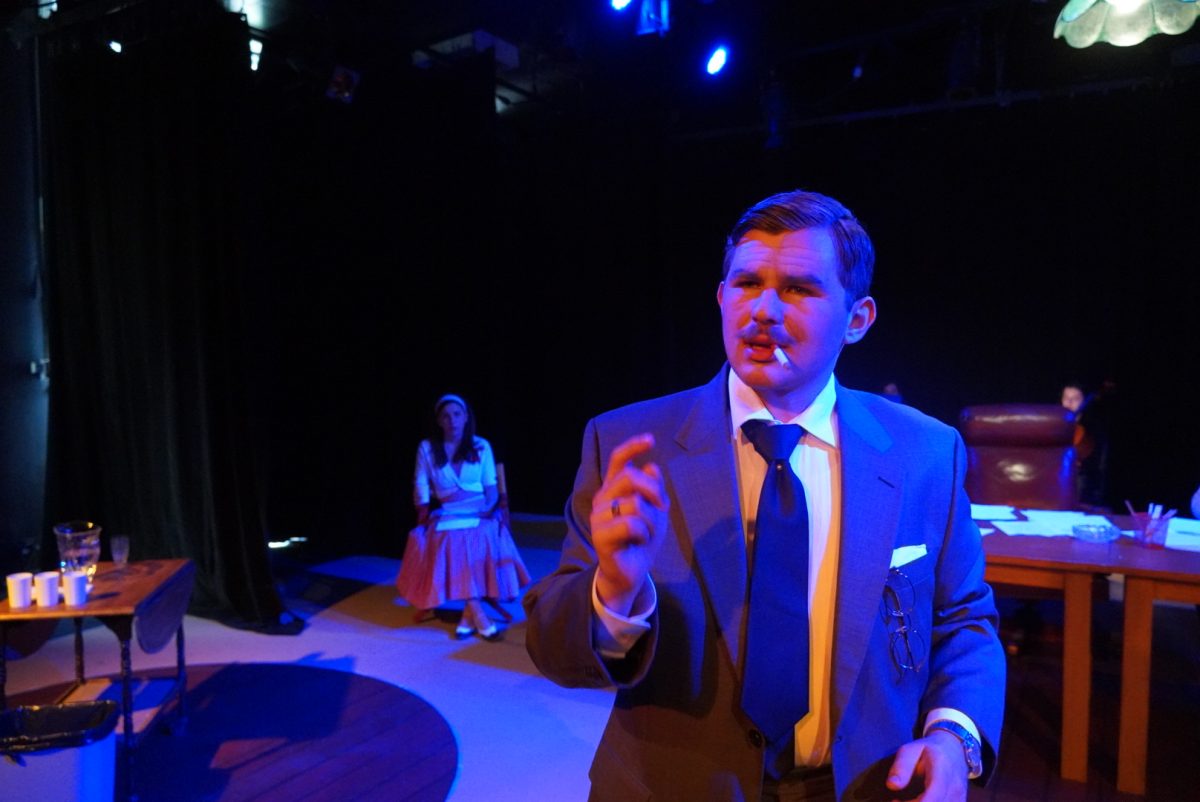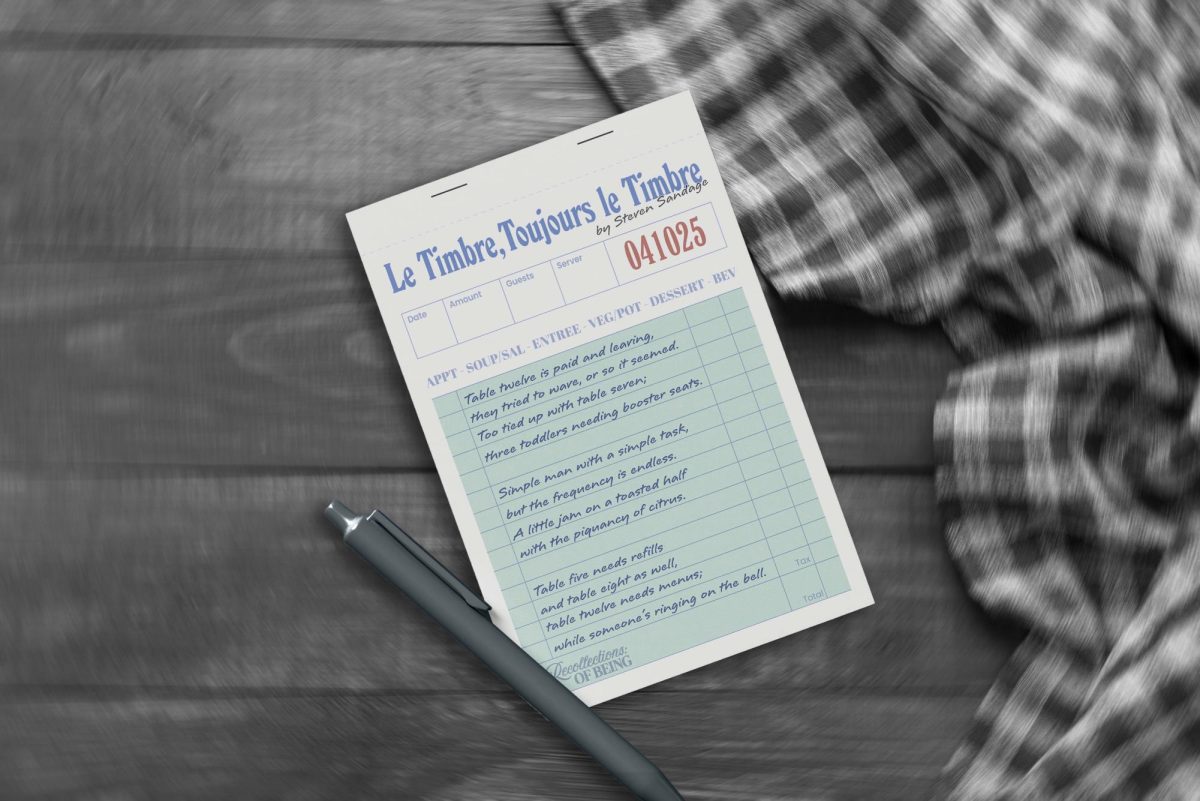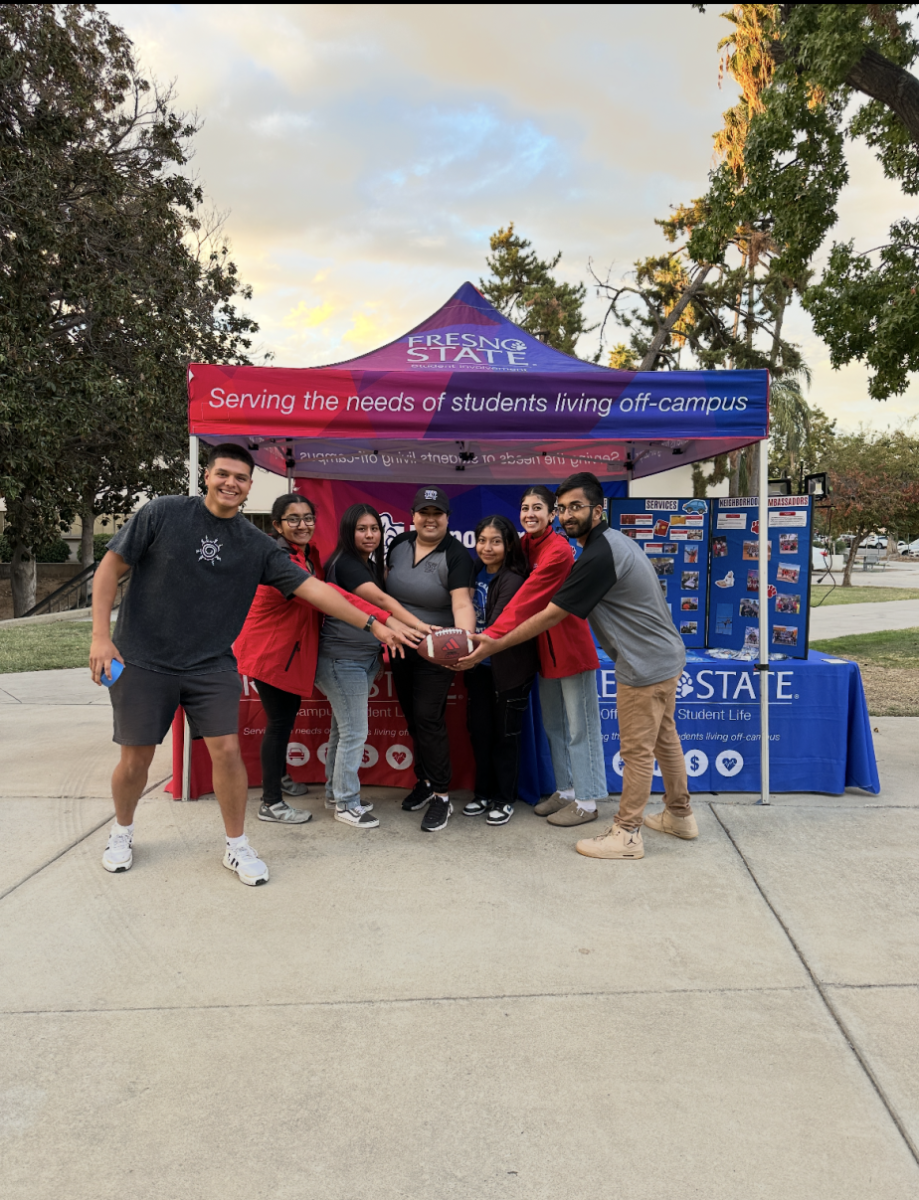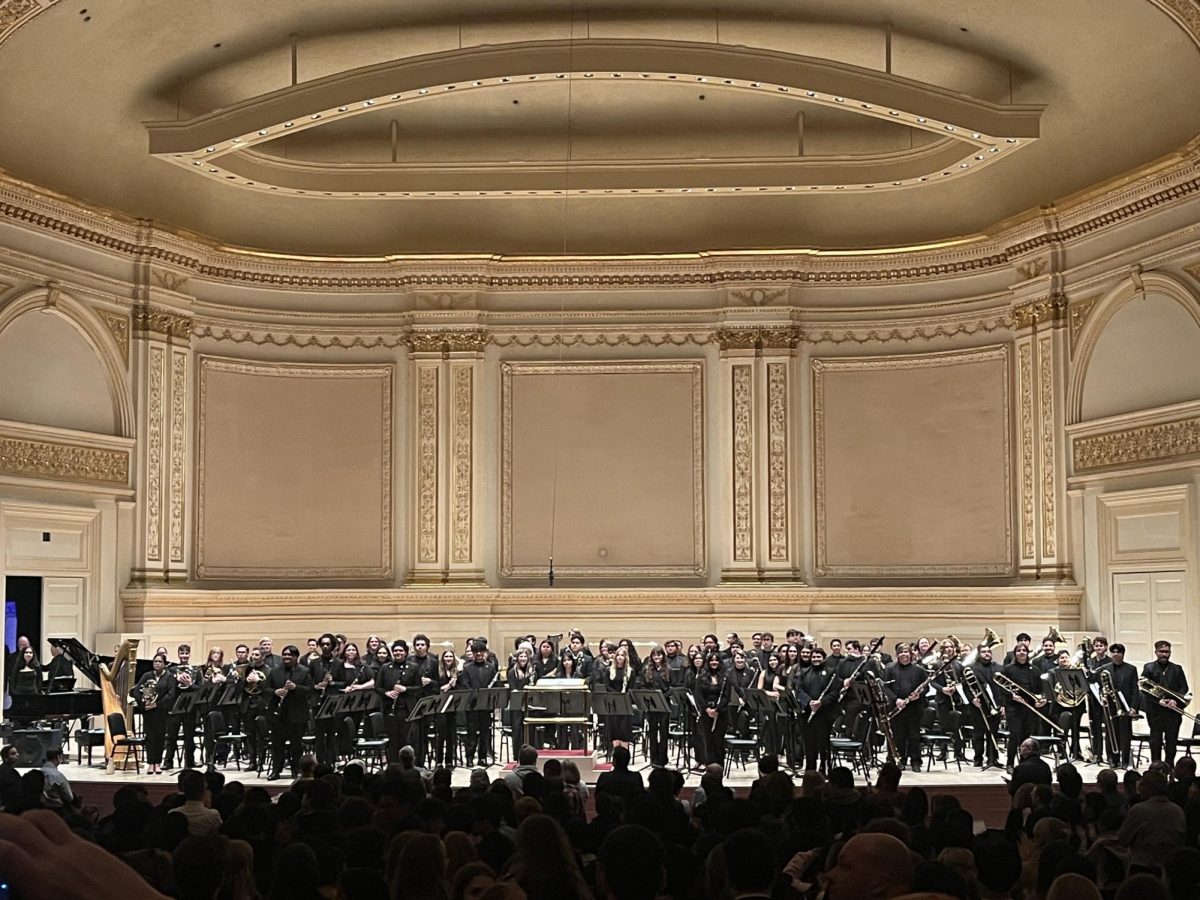“Two Ladies of Vermont,” written by Leanna Keyes and directed by Haley Wallace, was a clever reimagining of Shakespeare’s “Two Gentlemen in Verona” that adapts its problematic ending.
 “Two Ladies of Vermont” modernizes its setting, time period and overall story while retaining key story beats from the original.
“Two Ladies of Vermont” modernizes its setting, time period and overall story while retaining key story beats from the original.
The play was produced Nov. 10-12 by the Experimental Theatre Company, a student-run organization that strives to create an environment that nurtures the arts through rehearsing and producing a theatrical performance for public presentation.
The humor is a striking balance between being genuinely amusing and subtly quirky due to its very youthful tone and light-hearted spiritedness that captures the audience with its charming dialogue.
Comparatively, the same sort of quirky dialogue that you would get in some Marvel movies would best describe the nature of this play’s comedy. It’s fun, amusing and overall a good time.
However, there are moments when the play’s attempt to cater to a millennial audience becomes a double-edged sword, especially if one were to go in blind of Shakespeare’s work or of this particular story in general.
In some scenes that veer into adult territory, the play takes a surprising twist from its initial innocence, realizing that its modest tone was an unintentional development creating a feeling of inconsistency in the beginning.
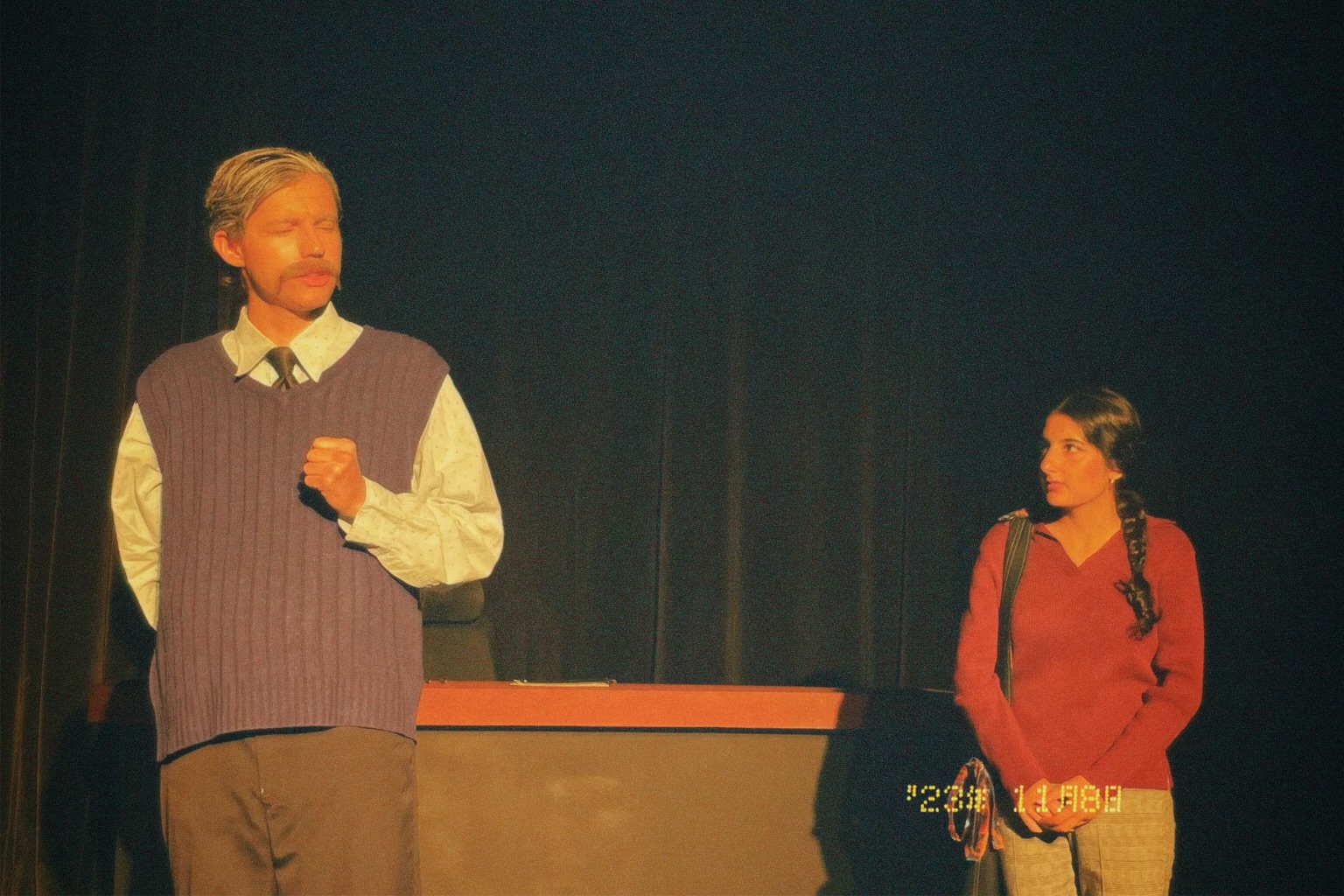
As the play went on, the story and its characters successfully grew into the identity of a millennial Shakespearean parody. It uses some mature implications throughout and stays consistent till the very end.
One actor that stood out from the rest was Austin Osuna, who portrayed the role of Proteus, in an exaggerated performance. The character comes across as the production’s main comedic relief. Proteus is someone who is very silly in nature and almost like a punching bag for the entire plot.
Initially, Proteus’ character and what he stood for came across as one-dimensional, serving only to be hated and as a frustrating antagonist.
Osuna made an interesting point that he is someone who needs guidance. Proteus is not someone who lacks empathy entirely, but is someone who is quick to let his desires get the best of him. As Osuna would like to describe it, he just simply doesn’t know.
“He’s so, ugh, there’s so much to him. I love him, but I hate him,” Osuna said.
According to the playwright herself in a talkback after the show, it was very important for Keyes to center the lives of queer and trans people, past present and future, with this story. It was an opportunity for her to tell a story about people who could possibly be her friends or about other people who are like her and have been in her shoes.
“I am most interested in writing about queer and trans people. I got into writing in the first place because I was doing, actually, a lot of Shakespeare and was always doing a lot of other people’s works, and I was like this is fun, but it doesn’t feel like it’s about me in any way,” Keyes said.
She had also implemented some personal life experiences and references that she personally could relate to which inspired some of the events or scenes in her play, dating back to when she was 14 years old.
She drew some inspirations from her life, such as moments of truths, significant moments, memories and relationships that sometimes echoed into her playwriting.
When it comes to theater, the crew always works with what they have, according to director Haley Wallace. The biggest thing for them was trying to present multiple settings in one room at the same time.
“I think it was an interesting way to explore scene changes. It was a hard day’s work, but I think we all came together really well to create it and get it done,” Wallace said.
Stage manager Kate Peck was commended for her job in setting up the play and the role she had in it, being that she is only 17 years old and impressed everyone in the audience including the crew.
She mentioned that throughout the planning, set pieces were always moved randomly from one place to another.
“We just adapted to a lot of the changes and we made it work with what we have and what we could get. It was a lot of manpower with everyone on our team,” Peck said.




